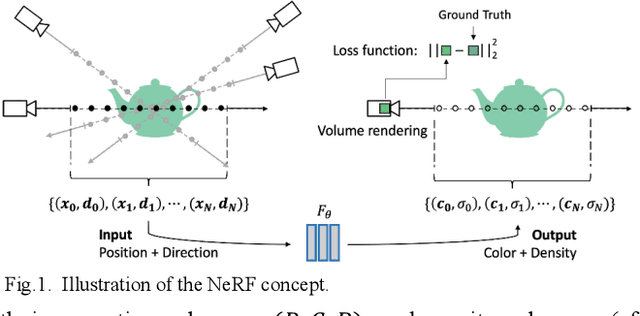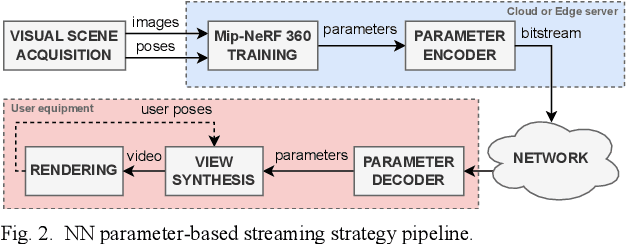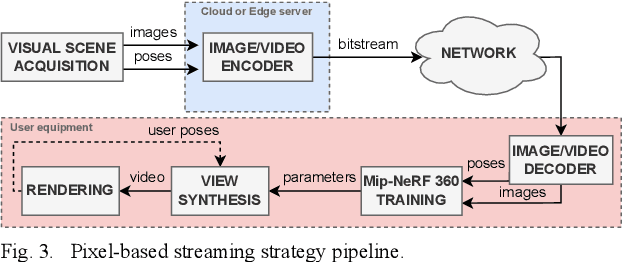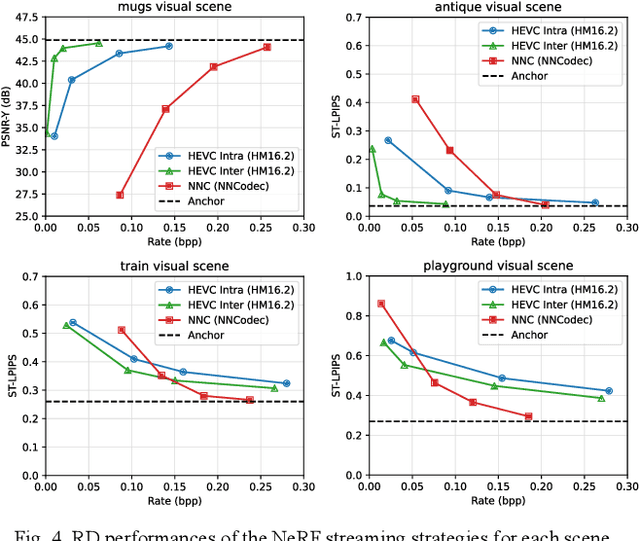Pedro Martin
GS-QA: Comprehensive Quality Assessment Benchmark for Gaussian Splatting View Synthesis
Feb 18, 2025Abstract:Gaussian Splatting (GS) offers a promising alternative to Neural Radiance Fields (NeRF) for real-time 3D scene rendering. Using a set of 3D Gaussians to represent complex geometry and appearance, GS achieves faster rendering times and reduced memory consumption compared to the neural network approach used in NeRF. However, quality assessment of GS-generated static content is not yet explored in-depth. This paper describes a subjective quality assessment study that aims to evaluate synthesized videos obtained with several static GS state-of-the-art methods. The methods were applied to diverse visual scenes, covering both 360-degree and forward-facing (FF) camera trajectories. Moreover, the performance of 18 objective quality metrics was analyzed using the scores resulting from the subjective study, providing insights into their strengths, limitations, and alignment with human perception. All videos and scores are made available providing a comprehensive database that can be used as benchmark on GS view synthesis and objective quality metrics.
Evaluation of strategies for efficient rate-distortion NeRF streaming
Oct 25, 2024



Abstract:Neural Radiance Fields (NeRF) have revolutionized the field of 3D visual representation by enabling highly realistic and detailed scene reconstructions from a sparse set of images. NeRF uses a volumetric functional representation that maps 3D points to their corresponding colors and opacities, allowing for photorealistic view synthesis from arbitrary viewpoints. Despite its advancements, the efficient streaming of NeRF content remains a significant challenge due to the large amount of data involved. This paper investigates the rate-distortion performance of two NeRF streaming strategies: pixel-based and neural network (NN) parameter-based streaming. While in the former, images are coded and then transmitted throughout the network, in the latter, the respective NeRF model parameters are coded and transmitted instead. This work also highlights the trade-offs in complexity and performance, demonstrating that the NN parameter-based strategy generally offers superior efficiency, making it suitable for one-to-many streaming scenarios.
 Add to Chrome
Add to Chrome Add to Firefox
Add to Firefox Add to Edge
Add to Edge